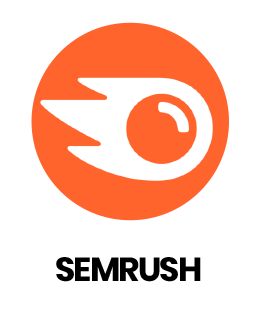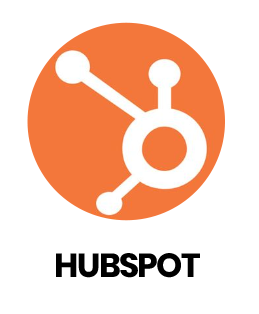SEO is the process of taking steps to help a website or content rank higher on Google. The main difference between SEO and paid advertising is that SEO involves an organic ranking, which means you can enter the field without paying. More simply, SEO means acquiring a piece of content online and optimizing it so that when someone searches for something, search engines like Google display it at the top of the page. The primary goal of SEO is to get your website on the first page of search results. ACTE offers the Best SEO Training Institute in Pune with a comprehensive approach. We provide 100% practical lessons through exposure to actual projects, which allows for a better acceptance of the concepts and methods that will take you to a prosperous career. Our institute always uses tried-and-true techniques to assist students to learn everything there is to know about search engines.
Additional Info
Job roles and responsibilities of SEO:
SEO Analysts perform several key functions to achieve the marketing objectives of a business. They are involved in developing strategies for both on-page and off-page optimization, keyword research, link building, etc. SEO Analysts work closely with the content team to drive traffic to the website.
- Listed below are some of the major roles and responsibilities of an SEO Analyst.
- Analyzing website and social media pages and suggesting recommendations for improvements to achieve goals.
- Conducting keyword research using dedicated software to optimize the content.
- Generating content ideas and guiding writers to produce SEO-friendly content. Monitoring website traffic, search results, and on-site and off-site SEO. Implementing and administrating search engine programs (XML sitemaps, shopping feeds, webmaster tools, etc.).
- Creating and promoting marketing content across social media platforms for promotional and educational purposes.
- Researching and administering social media tools to support on-going and new social media strategies.
- Managing project development and results alongside maintaining communications with the team.
- Implementing link building strategies in compliance with SEO needs.
- Develop optimization strategies that increase the company's search engine results rankings.
- Research SEO keywords to use throughout the company's website and marketing materials.
- Set measurable goals that demonstrate improvement in marketing efforts Monitor daily performance metrics to understand SEO strategy performance Efficiently communicate with other marketing professionals to align goals Collaborate with others.
- Within the marketing department to manage SEO strategy Write compelling and high-quality website content, including blog posts and page descriptions.
Tools for SEO:
Now that we have looked at the various processes involved in data analysis, let's have a look at the data analytics tools to do the aforementioned steps. In this article, we will explore 7 tools for data analytics, including a few computer languages to assist you do better analytics.
1.Ahrefs: SEO Keyword Tool:- Ahrefs is one of the most recommended SEO tools online. It’s only second to Google when it comes to being the largest website crawlers. SEO experts can’t get enough of Ahrefs’ Site Audit feature as it’s the best SEO analysis tool around. The tool highlights what parts of your website need
improvements to rank better in search engines. From a competitor analysis perspective, you’ll likely use Ahrefs to determine your competitor’s backlinks to use them as a starting point for your own brand. You can also use this SEO tool to find the most linked to content within your niche, check and fix broken links on your website,and get an overview of your best-performing pages.
2.Google Search Console: Top SEO Tool:- Having a website and using the Google Search Console, which is free for everyone, allows GoogleSERP to monitor and report on your website's existence. All you have to do is add the code to your website or check your website by going through GoogleAnalytics, and you can submit your sitemap for indexing.
You don't have to show your Search Console account in Google search results, but you can control what gets indexed and how your website appears in this account.
3. SEMRush: Marketing SEO Tools:- Marketing SEO tools like SEM Rush tend to be a fan favorite in the SEO community. Experts like the fact that they can easily evaluate rankings and identify opportunities for changes and new ranks. One of the most popular features of this SEO tool is domain analysis of domains, which makes it easy to compare websites with competitors.
4. KWFinder: SEO Keyword Tool:- SEO keyword tools like KWFinder can help you find long-tail keywords with less competition. Experts use this SEO tool to find the best keywords and run reports on back and on SERPs (Search Engine Results Pages).
5.Moz Pro: SEO Software:- SEO software Moz Pro continues to emerge as one of the best SEO tools professionals are actually using. Some experts have been enthusiastic about how Moz is always up to date, despite Google's regular algorithm changes.
6.Ubersuggest: Keyword Tracking Tool:- Developed by Neil Patel, Ubersuggest is a free keyword search tool that displays top-level SERPs to help you identify keywords and search intent. Hundreds of suggestions for this free keyword tool.
7.Majestic: Marketing SEO Tool:- Majestic is one of the best marketing SEO tools according to experts. It has countless useful features like The Majestic Million which lets you see the ranking of the top million websites. Did your website make the cut? The Site Explorer feature allows you to easily see a general overview of your site and the number of backlinks you have. It also works as an SEO keyword tool to find the best keywords to target while also having features geared to site comparisons and tracking your rank.
8. Google Trends: SEO Checker Tool:- Google Trends has been around for several years, but it's not fully utilized. Not only does it give you information about keywords, but it also gives you great insight into trends on your topic. This is very important at all stages of business growth. Keyword Search Top Queries in any country Receive information around you, such as your geographic location based on your interest, your interest over time, and your query on the rise. If you don't know which trend is right for you, this is the best SEO tool to use.
9. Google Trends: SEO Checker Tool:- Google Trends has been around for several years, but it's not fully utilized. Not only does it give you information about keywords, but it also gives you great insight into trends on your topic. This is very important at all stages of business growth. Keyword Search Top Queries in any country Receive information around you, such as your geographic location based on your interest, your interest over time, and your query on the rise. If you don't know which trend is right for you, this is the best SEO tool to use.
8. SEOQuake: Free SEO Tools:- SEO Quake is considered one of the best free SEO tools. This Chrome extension acts as an SEO checker tool that audits pages, evaluates both internal and external links, performs website comparisons, and determines performance with competitors. .. Other features of this SEO analysis tool include keyword analysis such as keyword density, an easy-to-read SEO dashboard, and an export feature that allows you to easily download data and send it to the core of your team.
Advantages of SEO:
SEO Increases Organic Discovery & High-Quality Website Traffic:- Organic visibility, which leads to higher website traffic, is a huge benefit of SEO. Search engine optimization is highly targeted and customer-centric. An effective SEO strategy will help you deliver your web pages to relevant audiences through relevant search queries. Since users are already searching for the content, you have to provide, organic visibility will bring high-quality traffic to your website without trying to attract or convince visitors.
SEO Offers Impressive ROI:- When evaluating digital marketing channels, return on investment (ROI) is often a priority consideration, if not the most important. While SEO results take time, a high-quality strategy eventually delivers impressive ROI. Search engine leads offer a close rate of 14.6%, nearly 12% greater than traditional marketing – however, if your website ranks at the bottom of page two, three, four, or not at all, leads will likely be non-existent. On the other hand, the first Google listing receives 33% of all search traffic. Search engine visibility directly correlates to boosted web traffic and increased revenue, making ROI one of the most significant SEO benefits for many companies.
SEO Improves Credibility & Trust:- Ranking on the first page of Google boosts credibility among potential clients. Google ranks websites based on dozens of on-page and off-page signals, such as created content, website speed, and mobile usability. While the majority of consumers probably do not consider these signals, users do expect Google to deliver relevant, valuable content first. Most trust the algorithm implicitly, and 75% of users do not move on to page two. Trust is developed on search engine authority and high-quality product or service that builds credibility among visitors.
SEO Provides 24/7 Promotion:- Search engine optimization will not stop after get off work. When the budget is exhausted, the content will not disappear, just like paid advertising. The rankings obtained through SEO can promote your website 24\/7, taking advantage of (at least) 60,000 Google searches that occur every second. Similarly, SEO is unique in that it allows your business to reach users when they search, rather than on billboards outside the city.
SEO Targets the Entire Marketing Funnel:- SEO-driven content marketing includes various types of content for each stage of the marketing funnel. Although blog posts at the top of the funnel or in the middle of the funnel won't convert initially, content like this can build brand loyalty and visibility characteristics that lead to conversion.
SEO Optimizes User Experience:- User experience is an important part of SEO and an important Google ranking factor. A Google user hopes that his query will be answered within a few minutes. Visitors who click on a website and experience a bad user experience (such as an incompatible mobile device or a series of pop-up windows) may disappear within a few seconds. A high bounce rate tells Google that the page is of no value to the user and usually leads to a decline in rankings.
SEO Enhances PPC Success:- Paid Search Engine Advertising (PPC) and SEO can work well together. Website rankings at the top of paid search results and natural home page ranking give consumers more opportunities to visit your website and enhance brand credibility. Additionally, SEO data can be used to inform and optimize your PPC strategy.
SEO is a Long-Term Marketing Strategy:- Although high-quality SEO usually has a significant impact on the business in the first year, SEO efforts will deteriorate over time, resulting in better results within a few years. In fact, the size and return on investment of search engine optimization results correspond to budget, effort, and time invested. If the SEO company promises immediate results, please be careful. It takes time to implement well-thought-out SEO strategies (such as content creation and page optimization) and master Google algorithms. To see the best results of incorporating SEO into your digital marketing strategy, be prepared to treat SEO as an investment with a significant long-term return.
SEO is Key to Search Visibility:- We live in an undeniable digital age. Organizations that intend to build an influential brand image must be visible on the Internet. However, if you are not on the first page, you will most likely not get clicks or promote your brand to anyone. Nowadays, search engine optimization is essential to a thriving brand image.
Most Important characteristics of the SEO:
Ability to customize Title Tags, Meta Descriptions, URLs, and Header Tags:- If your chosen platform does not give you the ability to edit title tags, meta descriptions, URLs, and header (H1, H2, etc.) tags for your home page, product pages, collections pages and other customizable pages, you are going to have trouble controlling the way your website is displayed on Google. Title tags and meta descriptions are not only important because they are a strategic place to add in your business' targeted keywords, but these fields also function as your call to action that compels searchers to click on your listing above competing listings.
A well-optimized URL structure and simple 301 redirects:- It is a very common problem for e-commerce platforms to automatically generate URLs that are hard for search engines to understand, especially on product pages and pages that are dynamically generated. However, the URL continues to be one of the most important components of any page for SEO purposes, not only because it tells the search engine what the page is about, but it also is the path through which the search engine finds that page. Therefore, an SEO-friendly e-commerce platform that is one that gives you the option to quickly and easily edit URL strings and re-arrange their structure. Even better still is an e-commerce platform that offers the option of easily 301 redirecting from the old URL to the new.
Mobile customization:- Just when you thought you were keeping up with the competition by creating an online store, now it is more important than ever to ensure that customers who access your webpage via a mobile device also have a great shopping experience which may require creating a new site just for mobile. Cutting-edge e-commerce platforms will have options available for you to optimize your website for a mobile device – either through an app that creates a mobile store for you, or through the use of responsive design, in which a website changes its size and shape depending on the screen on which it is being displayed.
A powerful internal search feature and proper indexation of internal search results pages:- Most e-commerce platform offer website visitors the option of conducting an internal search, whereby users can search for items or categories they may not have encountered while browsing the online store. However, many internal search engines leave much to be desired in terms of functionality, often leaving users with poor results or no results for straightforward searches. A good e-commerce platform is one that returns accurate results whether the user types in the name of a product, its category, its SKU number, or other important descriptors they may use to filter through your products.
Good customer support and a savvy technical team.
The Various Career opportunities of SEO:
Here are 7 popular roles and career paths for new and experienced SEO professionals looking to take the next step in their career.
Search Engine Marketer:- Search engine optimization and search engine marketing (SEM) are often lumped together, but in practice they are very different. SEM is much broader and incorporates SEO. SEM requires that you learn new skills including Pay Per Click marketing (PPC), advertising, and some customer relationship management, as you will have to work to market to consumers as well as to search engines. While many SEM professionals specialize solely in paid search, you can branch into SEM and SEO to handle both aspects. Search Engine Marketers earn a median salary of 45,255 according to Payscale, or an average of 2,300 more per year than a standard SEO specialist. Mastering Google AdWords, Bing AdWords, and various web analytics is a must for this position.
Business Marketing Consultant:- Some search engine optimization specialists go on to become public speakers, professional business consultants, and marketing consultants. While this position typically requires that you have demonstrated success with your own business or someone else's, it does afford the ability to work with companies almost everywhere, become a public speaker, and work with businesses on a client basis to improve their marketing and strategic planning. In most cases, working as a consultant will require you to work with clients to provide solutions to their specific needs, plan and assist in implementing search and other marketing initiatives, measure the effectiveness of existing strategies as well as ones that you put into place, and provide long-term support and strategization to those companies. In short, consultation is an ideal job if you are idea and strategy driven. The median salary for a business marketing consultant is 57,610 per year.
Digital Marketer:- Moving into digital marketing is an easy way to utilize your existing SEO experience while broadening your range of skills and increasing your salary. Digital marketers typically handle all types of online marketing including SEO, SEM, PPC, and social media. This means that you must be able to create and implement marketing strategies, utilize SEO, work with content planning, understand and utilize social media as part of long-term strategies, use analytics and data management, and work with advertising platforms to drive paid traffic. A digital marketer earns a median salary of about $46,919 per year, but relevant qualifications in web marketing, communications, and strategic marketing can boost your salary.
Marketing Analyst:- Data analytics is a large part of search optimization and as an SEO specialist you are likely very familiar with it. As a marketing analyst, your key responsibilities are using numbers to track the performance of existing initiatives, identify opportunities for new ones, and generate forecasts and reports based on data. Marketing analysts earn an average of 52,176 per year, and can benefit from qualifications in business analysis, strategy, market research, and SQL.
Content Marketer:- Content marketing is a natural step for SEOs who prefer working with content rather than links and numbers. Content marketers require SEO skills as they work with the direct creation of web content, blogs, outreach material, videos, graphics, reports, and other content. While your exact role will vary depending on the company, most content marketing professionals fit into a marketing team to act on the content decisions in a marketing plan. With a median salary of 56,414 for newcomers to the field, content marketing also pays significantly higher than SEO on its own.
SEO Manager:- Search engine optimization often requires a team of analysts, data managers, SEO specialists, content strategists, technology experts, and so on. The larger a company, the larger their SEO team will be, and the more they will benefit from an SEO manager. Managers must understand search engine optimization and potentially search engine marketing, but directly oversee a team and marketing strategies rather than directly working with the mundane elements of data and link analysis. If you are people oriented, this can be more exciting than SEO itself. SEO managers earn a median income of 64,358 but may have a diverse array of responsibilities depending on the company and the size of the team.
Entrepreneur:- Starting your own business allows you to bring your skills as a Search Engine Optimization specialist and offer them to businesses on your own terms. Unfortunately, your salary can greatly vary depending on your business, your launch, and the services you offer, so there is no one set general salary for those who choose to start a business in SEO or in digital marketing. However, if you do have something to offer to businesses, prefer to work on a contract basis, or have another reason to launch your own company, starting your own business can be rewarding and profitable in the long term .








































